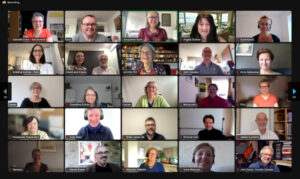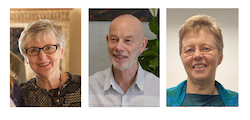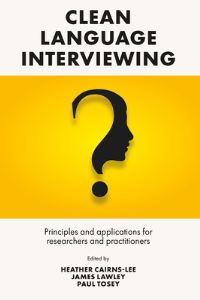L. Michael Hall asked me to write a preface for his latest book, Benchmarking Intangibles: The Art of Measuring Quality, and here it is.
Preface
 We assess, compare and judge against standards hundreds of times every day. Even if we are aware we are making these evaluations, we are almost certainly not aware of the scale we are using or how it came into being. You may know you love someone, but do you know how much, and how many gradations are on your scale?
We assess, compare and judge against standards hundreds of times every day. Even if we are aware we are making these evaluations, we are almost certainly not aware of the scale we are using or how it came into being. You may know you love someone, but do you know how much, and how many gradations are on your scale?
Whenever we make an assessment (“The food was superb”), or compare ourselves with another (“I’m a better driver”), or gauge the degree of something (“That’s easy”), or judge someone (“He’s the best”), or react when something fails to meet a standard (“How dreadful”) we are evaluating – ascribing a value to – and that is the basis of benchmarking.
Benchmarking is the overt and systematic evaluation of a person, machine or process against a predefined scale or standard of excellence. The results are used to improve performance and the whole process is repeated again in an iterative cycle of development.
Benchmarking is a multi-level, meta-tool. It is a way for a system to measure, monitor and provide feedback to itself so that it can change and improve. To avoid self-confirmation bias the process needs to be grounded. This can happen in a number of ways: the points of reference can be drawn from outside the system; the evaluation process can be clear, consistent and congruent with the purpose of the benchmarking; the evidence for the measurement can be based in sensory experience; and the process of benchmarking can itself be subject to benchmarking.
In Benchmarking Intangibles: The Art of Measuring Quality, Michael Hall describes how we can use the process of benchmarking to stalk excellence – from individuals to large organizations. He has applied methodologies from Neuro-Linguistic Programming and Neuro-Semantics to produce a detailed operational manual about those oh so important distinctions that seem oh so hard to measure. How do you measure the quality of something?
I worked with the head of an organisation which supported families who had a child with Asperger’s syndrome. I asked him: “How do you know when your organisation is getting excellent results?”. He thought long and hard before replying “I know when the siblings of the child with Asperger’s are happier.” “How so?” I wondered. “As the child with Asperger’s improves, the parents relax and they give more attention to their other children. The siblings don’t feel so left out and their behaviour and general happiness improves as well.” While his answer initially surprised me, it makes sense systemically. When one part changes, those changes cascade through the rest of the system. Often by-products are better benchmarks of the whole system than a more obvious direct measurement.
But, like everything else, there are potential downsides to benchmarking: losing sight of the state of the forest because of concentrating on measuring tree growth; assuming that measuring something reduces the risk of it failing, leading to a false sense of security; and as Gregory Bateson warned, excessive quantification can lead to a reduction in the appreciation of aesthetics.
The antidote is to keep the big picture in mind, to remember that any evaluation is only a snapshot, that all snapshots are taken from a certain perspective and hide as much as they reveal, and to continually ask: What is the overall purpose of benchmarking? Are we meeting that purpose? And how do we know it is benefiting the larger system?
Michael Hall emphasizes that at it’s best, benchmarking can awaken people to new possibilities and inspire them to vault the bar of excellence.
Whether you aim to establish a corporate benchmarking system or to evaluate your own personal development, there will be plenty to interest you in this book. As well as what you would traditionally expect from a book on this topic, you get the bonus of fascinating side shoots into such topics as the nature of knowledge, abstraction and expertise.
February 2011
Sydney, Australia








